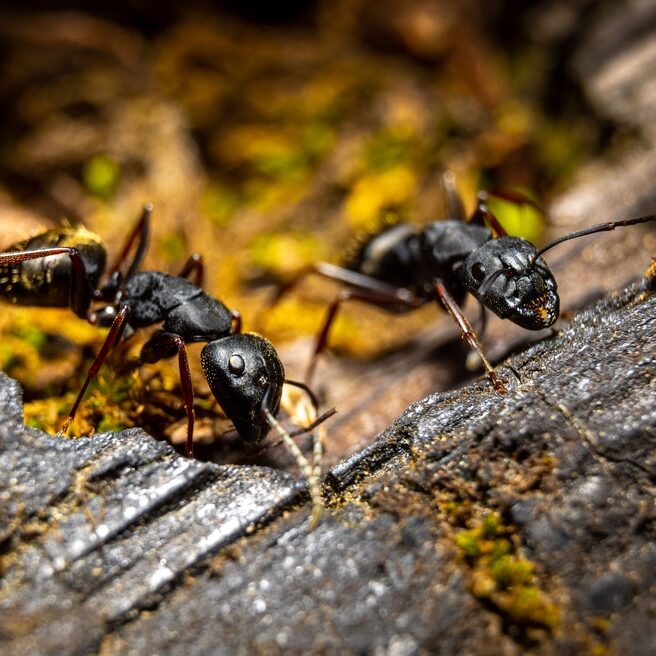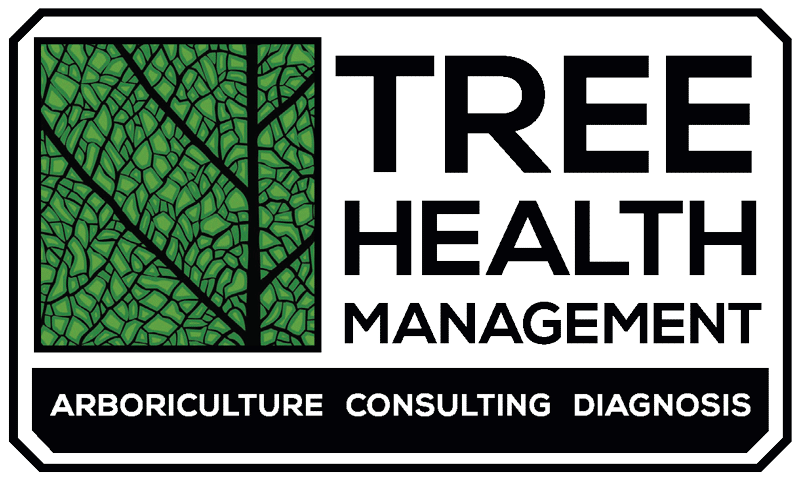Pest Management
How to get rid of ants and sucking insects

Arborists often get questions from concerned customers when they discover a large amount of ants congregating on new growth of herbaceous plants, shrubs and trees. Ants found in large numbers on new growth is often an indicator of the presence of a number of unrelated sucking insects such as aphids, scale and leafhoppers to name a few. Ants, on their mission to acquire sugars to sustain their colony, are attracted to the frass created by sucking insects, called honeydew. Honeydew is a sweet, sticky, clear substance comprised of sugars extracted from new growth on plants that are easily punctured with the piercing, straw-like mouthparts of sucking insects, such as aphids.
In an effort to encourage the production of plant sugars for consumption, ants will move aphids (and other sucking insects) to new plants. This behavior is often referred to as “farming’’ and is a classic example of a symbiotic relationship. Additional indicators for sucking insects is the presence of sooty mold, which is black in color and resembles dirt or dust. Sooty mold forms on the moist sticky surface of leaves covered in honeydew, and is often found on leaf surfaces below the point of insect feeding. The mold itself is not harmful to plants, but can inhibit the leaf’s ability to photosynthesize if it becomes too thick for sunlight to reach the leaf surface. Honeydew and sooty mold can be a nuisance when they fall from large shrubs and trees onto surfaces below, like cars and outdoor sitting areas. Wasps are also attracted to honeydew and can be found where large numbers of sucking insects are feeding.
Sucking insects damage new growth on plants by inserting their mouthparts into plant tissues and extracting sugary fluid. This type of feeding causes leaves to become deformed, stunted, yellowed, wilted and weaken and potentially kill leaves and stems entirely. Sucking insects stress trees and shrubs and can weaken them over time.
Contact Tree Health Management if you suspect you have an infestation of aphids, or suspect sucking insects on your shrubs or trees and we can help!
